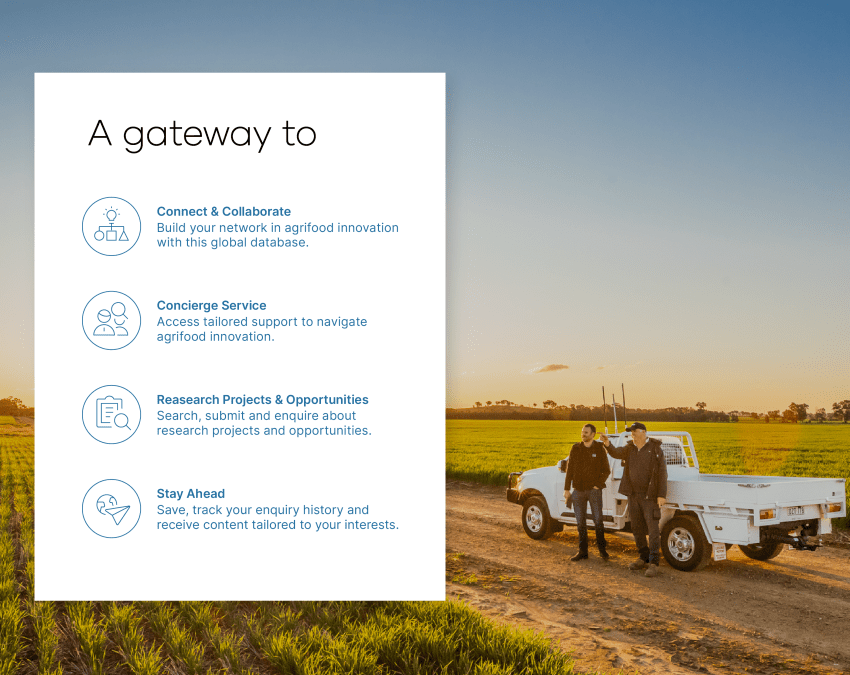-contain-250x120.jpg)
Water quality testing tech to deliver fast, cost-effective solution for pork industry
A new on-site rapid water testing device designed to facilitate real-time decision making for better health and nutrition outcomes across Australian pig farms is ready for commercialisation. The Australasian Pork Research Institute Ltd, Hone and Ridley are seeking partners testing high volumes of water samples, to support the commercialisation of the product, now listed as an opportunity on growAG..
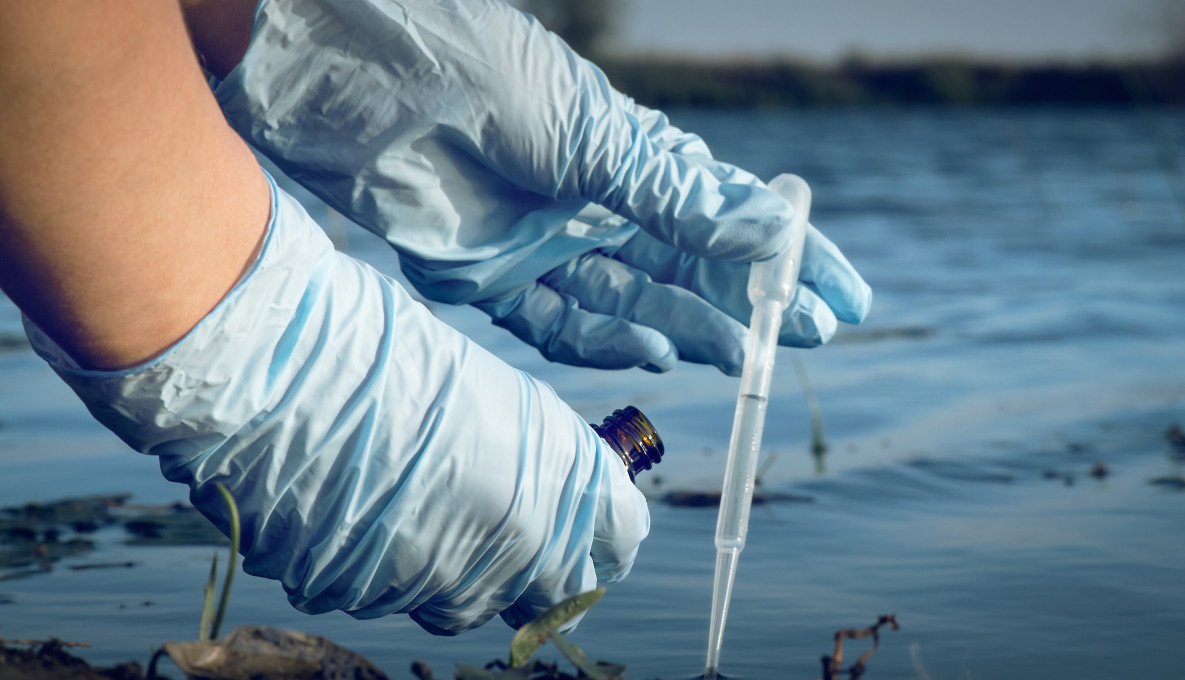
As the first – but often forgotten – nutrient, water is essential in ensuring the optimal health, welfare and performance of pigs. But while understanding the quality and variability of water being used on Australian pig farms is critical, water testing is far from a routine practice.
With a cost of around $200 for a full analysis of a single sample of water, current processes make regular testing across multiple sites prohibitive for most farmers. The need to send the samples off-site to a laboratory and wait up to a week for the results also limits its effectiveness for quick decision-making.
This challenge is what’s driving an innovation project by the Australasian Pork Research Institute Ltd (APRIL), national feed manufacturer Ridley Corporation and agritech company Hone.
The trio have designed and tested a new on-site solution that delivers results in minutes and enables decisions to be made and implemented on the spot.
Now the trio have launched a call for commercialisation partners to help develop the technology ready for market.
Related organisations
-contain-250x120.jpg)
Interested in becoming a commercial partner? Learn more about the opportunity here.
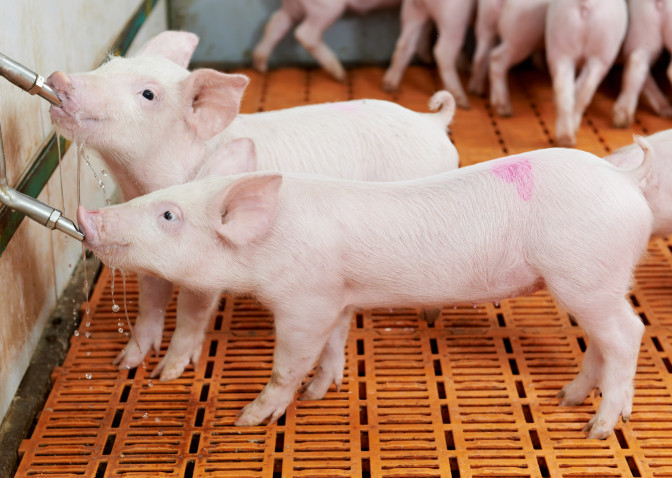
Back to the basics
Water isn’t just essential for a pig’s health, it’s fundamental to the composition of the animal itself, making up around 80 per cent of a piglet’s body at birth, and about half the weight of a finisher.
It aids the transportation and digestion of nutrients, assists in regulating body temperature and eliminating toxins, and helps protect the pig’s organs.
Externally, water is the most important nutrient in a pig’s diet and is also used for the delivery of in-water antibiotics, vaccines and nutritional additives.
RELATED: Turning waste into water: The pork industry's transformative tech
The importance of understanding water quality
But not all water is created equal. Australian pig farms draw their water from different sources including bore water, surface water like a river, lake or an irrigation channel, farm dams, or town water supplies.
The quality of the water at its source and at the point of consumption on the farm, can make a big difference to its suitability for use and the effectiveness of in-water treatments according to veterinarian and agricultural consultant Steve Little, who has a PhD on in-water medication and 35-years of experience in the pig, dairy and stock feed industries.
“Water quality varies widely across farms, and it varies over time on each farm, so whenever you're dealing with something that's variable, there's a pretty strong argument for monitoring it closely,” said Steve.
“On many pig farms, the drinking water system is also used to administer antimicrobials to pigs to maintain their health and welfare. Water pH and other parameters can impact the solubility of various antimicrobial products, and therefore their effectiveness.”
RELATED: Low-cost green hydrogen technology for Australian farms, ready for investment
Diving deeper into water management
Previous research into water quality and management in the Australian pig industry undertaken by Ridley and the Co-operative Research Centre for High Integrity Australian Pork (the forerunner of APRIL) demonstrated the huge variability within the water being used on farms.
Water was tested across 57 farms from five states in Australia and the results showed that most water quality parameters were outside the acceptable standard at both the source and at the point of consumption.
RELATED: Water saving solution, Goanna Ag seeks $10m investment to fund US expansion
The research also highlighted a lack of routine water testing, which meant farm managers had “poor visibility of the potential negative impacts that inferior water quality or management may be having on pig production and in turn the economics of their business”.
APRIL Commercialisation and Research Impact Manager, Charlie Rikard-Bell said it was this research that prompted Ridley and Hone to design a system that would enable cost-effective on-site testing with rapid and reliable results.
“That was quite innovative as there isn't really any available rapid assessment of water quality for livestock at the moment,” said Charlie.
“We were very interested in looking at that, but I think it goes beyond just the pig industry, it's got applications for livestock industries, agriculture in general and possibly mining and other industries that are assessing water.”
RELATED: Bayer Crop Science embraces open innovation
While it was designed for on-farm water testing prior to water medication or treatment, the agritech has applications for in-field or in-lab water quality monitoring, raw water testing, early detection of pollution, grey water testing, trade water monitoring and testing of potable re-use water.
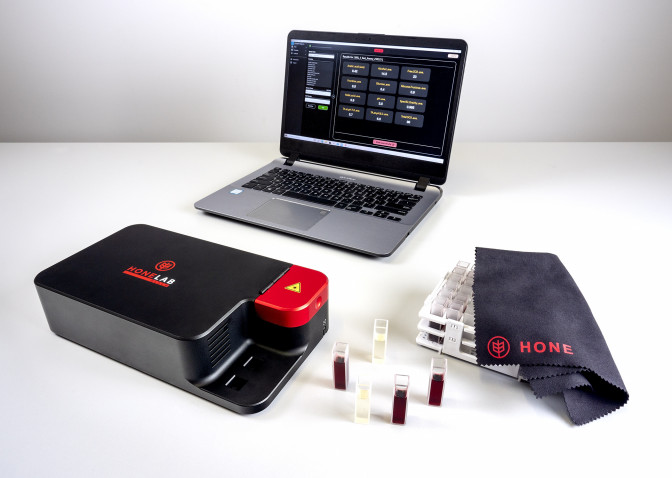
Setting the parameters for water quality
Together, the project partners have designed and validated a semi-portable Raman spectroscopy device that is capable of assessing more than 13 water quality parameters including typically tested variables, alkali metals, heavy metals and microbiology.
The compact desktop device, which is smaller than a laptop computer for easy portability, can be used on-site to easily test water samples collected across the farm.
It interacts with Hone’s online data analysis platform, which uses machine learning software to analyse the spectral data and accurately predict the chemical content of the water within a few minutes. The results are based on calibrations for multiple water quality parameters, including key pathogens and coliforms [bacteria], which the team developed by investigating the relationship between spectral and traditional chemical analysis of almost 180 water samples.
RELATED: CRDC seeks partners to commercialise novel bio-pesticide with global potential
Hone R&D Manager and Co-Founder, Jamie Flynn said advances in analytical technology meant it is possible to measure multiple parameters using portable spectroscopy hardware and cloud-based software.
“The two real value propositions are that it enables faster decision making because of the rapid return of results, as well as the breadth of knowledge you can gain because you can test for multiple analytes in one scan,” said Jamie.
“Water testing hardware that's out there at the moment is still very difficult to use because you've got to use multiple reagents, enzymes and/or consumables for each parameter, whereas we collect everything in one hit and it relies on the back-end analysis to pull out the key chemical variables from the single scan that's performed.
“We’re now looking to collect a larger data set to deliver the accuracy and repeatability that's required to make these on-farm decisions with confidence.”
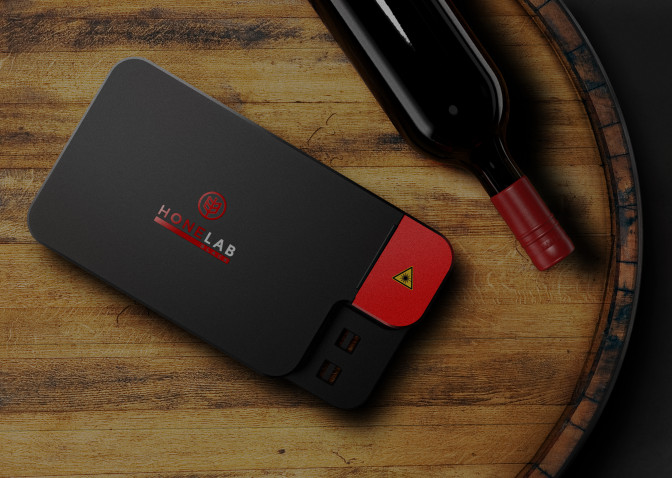
Next step towards commercialisation
With the proof of concept and minimum viable product (MVP) achieved, the project team are seeking a suitable partner that tests high volumes of water samples to support the commercialisation of the agritech.
“We've got promising calibrations for water quality assessment but we need more samples again to get more robust calibrations. This means a lot of additional allied wet chemistry,” said Charlie.
“We're looking for partners to help out with the wet chemistry costs, including companies involved in water assessment. There may for an example be an agricultural enterprise currently testing for water quality parameters, and has data we could utilise.
“The aim is that within 6 to 12 months of securing a partner we'll have validated the calibrations in the field, and from there the partnership will take the required steps to bring the technology to the marketplace.”
Interested in becoming a commercial partner? Learn more about the opportunity at growAG.com here.
-crop-850x675.png)
Looking for engagement?
Showcase your commercialisation opportunity today.
Talk to our team to discuss how growAG. can connect your innovation to industry.
Have questions? Find answers to our most frequently asked questions on research projects, commercial opportunities, organisations and more.
